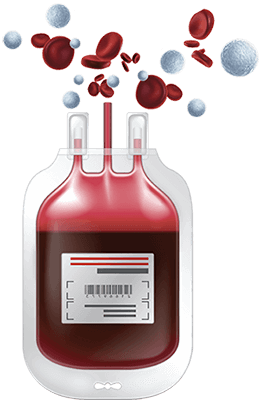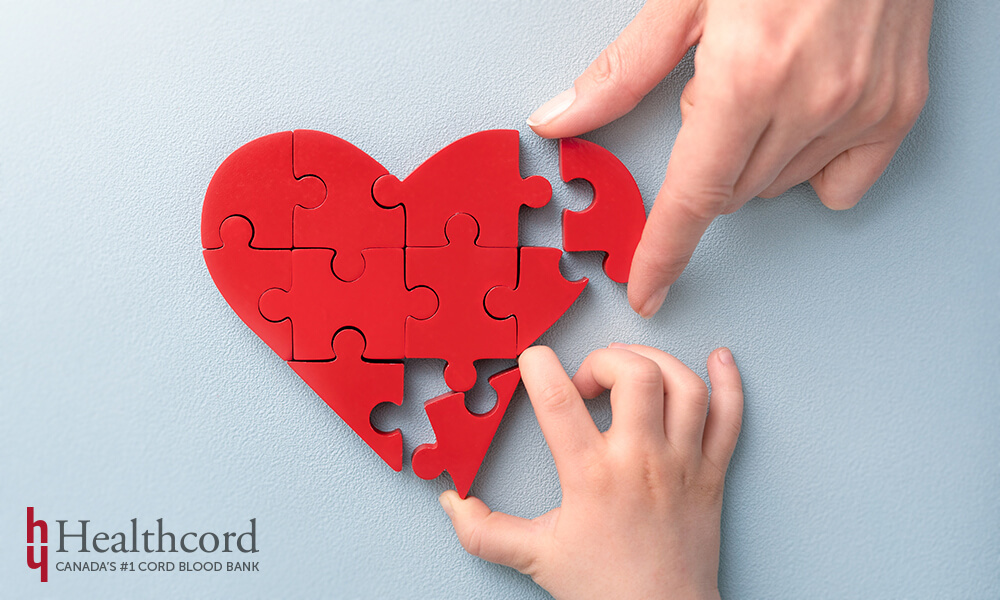Canada's Largest & Oldest Cord Blood Bank
Congratulations! This week you officially start your fifth month of pregnancy.
This Week’s Highlights
Your baby can hiccup
Your baby’s nervous system is maturing
You will have your mid-pregnancy anatomy scan
Your Baby at 18 Weeks
Your baby is the size of a bell pepper, measuring about 5.6 inches (14.2 centimeters) from head to rump and weighing in at about 6.7 ounces (190 grams).
Baby Development at Week 18
Your baby is starting to look more and more like the newborn that you will meet in 4 short months. His or her organs are maturing fast now, particularly the lungs.
By the end of the second trimester your baby’s lungs will develop all the branching tubes, which will be attached to the air sacs (alveoli) located at the end of these branches. After birth, these sacks will be ready to pick up the oxygen, so it can be circulated to the rest of the body.
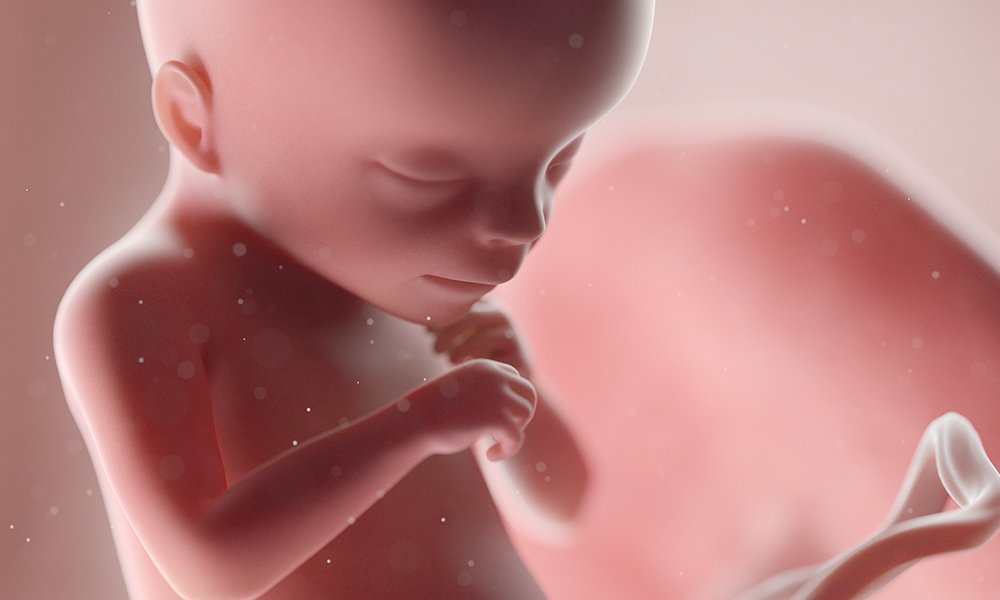
If you are wondering what your baby is practicing at the moment, the answer is a bit of everything. He or she is yawning, sucking, swallowing, twisting and rolling. You may even be able to feel your baby hiccupping at this point.
The Anatomy Scan
Between 18 to 22 weeks of pregnancy you will have your anatomy scan, which may be the second ultrasound of your pregnancy. You will be able to watch your baby perform all of the above mentioned activities such as sucking, swallowing and twisting during this scan.
Your baby’s head, arms, legs and heart and other organs will be measured during this scan to track of his or her development. Even better, you will be able to find out your baby’s gender during this scan. Have you decided whether or not you will be finding out your baby’s gender?

Pregancy Tip
Once you start showing your bump, you will start receiving pregnancy advice from many people. A simple “thank you. I’ll think about it” will keep most of them happy and at bay.

Crash course: Cord blood banking in 11 minutes.
Your Bump at 18 Weeks
Your baby and your uterus are growing very fast at this stage of pregnancy. You will probably notice that you are starting to look more and more pregnant. Have you been documenting your expanding belly?
How Your Body is Changing
If you haven’t already, you may feel your baby this week. Quickening can happen anywhere between 16 to 20 weeks of pregnancy. These first sensations will feel fluttery and can only be felt by the mom-to-be. Real kicking that can be felt by your partner, won’t start for another month or so.
Your body is going through many different changes at this point, the main change involves your circulation. There is a dramatic increase in your blood volume to provide both you and your baby with adequate oxygen. This increase in volume can lead to the expansion of your blood vessels causing your blood pressure to drop. If you experience dizziness, it probably means you are not getting enough blood flow to your head.
Another symptom that may appear around 18 weeks is swelling caused by increased water retention (edema). You may notice swollen feet at the end of the day. It is caused by the pregnancy hormone relaxin (which relaxes your pelvic joint so the baby can fit through the birth canal) as it also relaxes the ligaments in your feet. As a result, your bones now have a chance to spread. Elevating your feet and soaking them in cool water can help. It may also be necessary to buy new shoes in a bigger size.
How Far Along are You?
18 weeks in, 22 weeks to go! You are just a few weeks away from the halfway point in your pregnancy. Even though pregnancy is measured in weeks this means you going into the fifth month of pregnancy.
Diet at Week 18
Your baby is making a large amount of red blood cells right now. Hemoglobin, the molecule that carries oxygen inside the red blood cells requires iron. So getting enough iron in from your diet is extremely important.
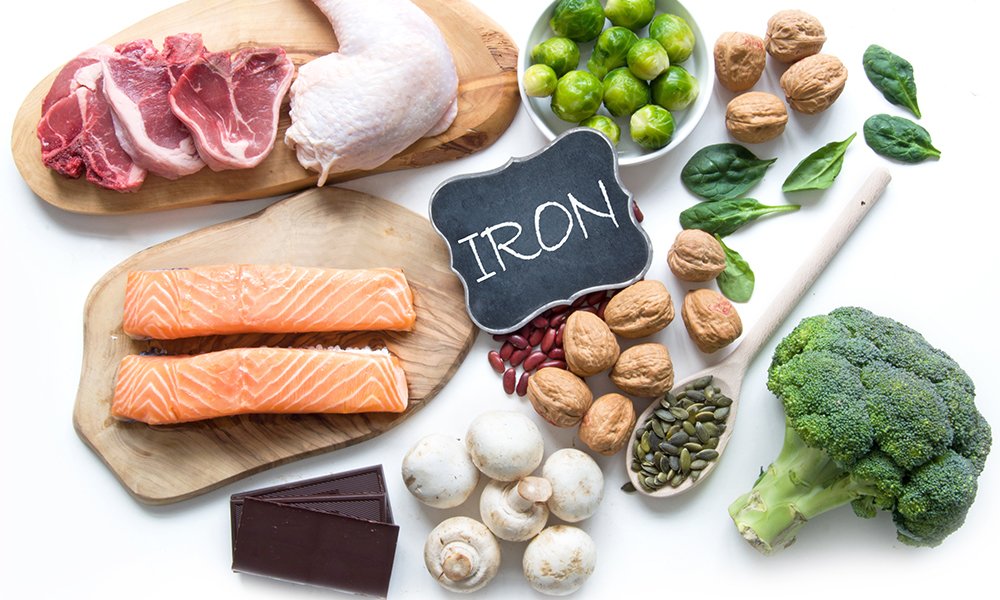
You will have to ensure that there is enough iron in your diet, particularly if you are vegetarian and do not eat red meat. Beans, pumpkin seeds, spinach, seaweed and soy products are high in iron. You may want to talk to your healthcare provider about taking an iron supplement.
At this stage of pregnancy, you want to be very selective about taking herbal supplements that are not tested or approved by healthcare authorities. Natural products may sound attractive, however, some herbs like fenugreek, clove oil and basil oil can be dangerous when taken during pregnancy. Always check with your healthcare provider before adding any natural products or supplements to your diet.
Stem Cell News
We round out this week’s cord blood news highlights with another exciting headline from The Harvard Stem Cell Institute: “Researchers at Massachusetts General Hospital (MGH) led by Harvard Stem Cell Institute Principal Faculty Harald C. Ott M.D. have generated the embryonic cells that support early heart development.” Source →
“Producing cells that play key roles in forming the structure of the heart is necessary for regenerative medical strategies that may be used in treating heart disease.” You can keep track of the latest uses for cord blood and stem cell therapies from here →
Exercise at Week 18
As your baby starts growing rapidly over the next few months, it may be necessary to modify your workout routine to fit with this stage of your pregnancy. Your joints are looser, your center of gravity is shifting and your blood pressure is more likely to be low.
Also, certain exercise moves are no longer safe. These include exercises that require lying flat on your back, jumping or moves that involve jerky movements. Make sure you are listening to your body and stop exercising if it feels too strenuous or painful.
Pregnancy Symptoms at Week 18
Dizziness – Dizziness may be due to several different factors including changes in circulation, pregnancy hormone levels and your growing bump. You are sharing your blood supply with the baby, which means sometimes your brain may not get enough oxygen to support your body. Make sure you don’t spend too much time in hot, stuffy rooms and aren’t letting your blood sugar levels drop too low.
Hemorrhoids – Did you know that the increase in your blood volume is also behind your hemorrhoids? They are caused by dilated blood vessels in your rectal area. You can adopt preventative strategies such as including more fibre in your diet and drinking more water to avoid haemorrhoids. Warm baths can help sooth existing haemorrhoids.
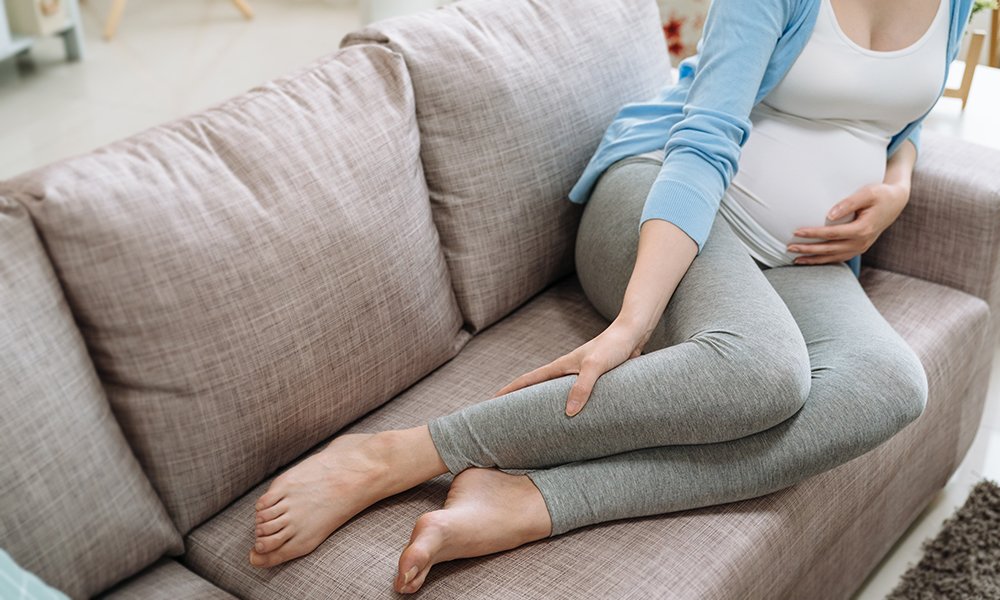
Leg cramps – Leg cramps can be frequent in the second and third trimesters of pregnancy. While the causes behind leg cramps are not completely understood, there are several remedies you can take to reduce their frequency and duration. Staying hydrated, stretching, resting your feet when possible, and including more calcium and magnesium in your diet can be helpful.
Bloating and gas – The pregnancy hormone progesterone causes smooth muscles in your body to relax, which includes the muscles of the digestive track. As a result, digestion slows down giving your body more time to absorb nutrients, so it can be passed on to the baby. Bloating is one unfortunate side effect caused by this slow down.
Swollen feet and ankles– Edema or swelling of feet and ankles is caused by increased water retention during pregnancy. The increase in fluids is cause by increased blood flow to both your and your baby, and the fact that the blood gets returned back to your heart at a slower rate. You may also experience more swelling in your feet, if you’ve gained extra weight. A relaxing footbath or resting your feet by putting them up every so often can help.
Dry, itchy skin – As your belly and breasts grow, the stretching skin can often cause itchiness. Staying hydrated and applying moisturizer can help minimize the dryness and the itchiness.
Have Questions about Cord Blood Banking?
Top 3 Reasons
- Available for a lifetime
- A perfect match
- Access to future therapies


